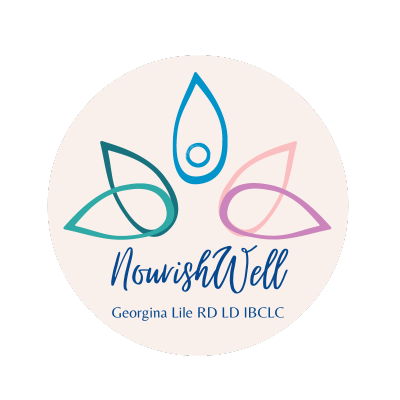Iron: A Critical Nutrient for Pregnancy, Recovery and Breastfeeding
From conception to the age of two, is the most active period of neurological development referred to as the “critical 1000” days of life. Key nutrients that are essential for brain growth during this time, include protein, iron, zinc, choline, folate, iodine, vitamins A, B6, B12, and DHA. Providing adequate amounts of these nutrients improves lifelong brain function and overall health.
Let’s take a closer look at iron today. Iron is a component of hemoglobin which carries oxygen to the brain and all other tissues. It plays a profound role in development of fetal brain and organ development.
Iron deficiency during pregnancy increases risk of premature birth, having a low birth weight baby and postpartum depression. It can also impair your thyroid function which can lead to developmental delays for your baby. Fetal iron deficiency can result in lower IQ and higher risk for autism, schizophrenia and mood disorders.
Iron deficiency is common during pregnancy because our iron needs are at least 1.5x higher than usual. This is due to a significant increase in red blood cells and blood volume to support the growth of the baby and the placenta. Your doctor should check your iron during pregnancy and let you know if it is low.
After pregnancy, anemia and iron deficiency are even more common. Iron transferred to the baby in utero and postpartum blood loss during and after birth reduces the birth parent’s iron stores. Low iron levels in the postpartum period can result in fatigue. It is also associated with low milk supply. The good news is that milk supply can bounce back once iron levels are normalized.
The recommended intake from iron is 27 mg during pregnancy. Not all prenatal vitamins contain iron so it is a good idea to consume a daily prenatal vitamin with iron preconception, during and after pregnancy. If you are iron deficient, your doctor may prescribe an additional iron supplement. Some women experience side effects with iron supplements. In this case, try the well absorbed form of iron called iron bisglycinate which causes less side effects. Spirulina is an alternative supplement. It is an algae based powder you may add to smoothies or a supplement that is naturally high in iron and has been shown to improve iron status in pregnant women as well as an iron supplement. It is also a great source of DHA which is another important nutrient for pregnancy and breastfeeding.
I recommend eating foods that are naturally rich in iron, especially from animal foods. The type of iron found in animal foods is called heme iron and is absorbed 2-4x more easily than non-heme iron found in plant foods. Foods richest in heme iron include all meats and seafood. Vegetarians should consume plant sources of iron at every meal and may also supplement with spirulina.
Iron absorption is inhibited by tannins and calcium. Tea and coffee both contain tannins that reduce absorption of iron. Calcium competes with iron for absorption. If you are trying to increase your iron levels, it is best not to consume tea, coffee or dairy products within 1 hour of taking your supplement or eating high iron foods.
Iron absorption is enhanced when eaten with vitamin C or other acidic foods. Tomatoes, tomato sauce, vinegar and citrus fruits make a good accompaniment to iron rich foods. If you are deficient in iron, I recommend you take your supplement alongside a piece of citrus fruit or a small amount of orange juice. Cooking with a cast iron pan will also effectively fortify your food with iron.
It is a good idea to consult with a dietitian if your doctor tells you that you have anemia. A dietitian can help you plan meals with high iron foods and increase your absorption of iron as well as all the other critical nutrients needed to build a healthy baby, and recover your energy postpartum.
Georgina Lile is a Registered Dietitian and Internationally Board Certified Lactation Consultant. She offers preconception and prenatal nutrition assessments. Contact her at glile@nourishwell.online for a nutrition assessment, help choosing the right supplements or balanced meal planning.
